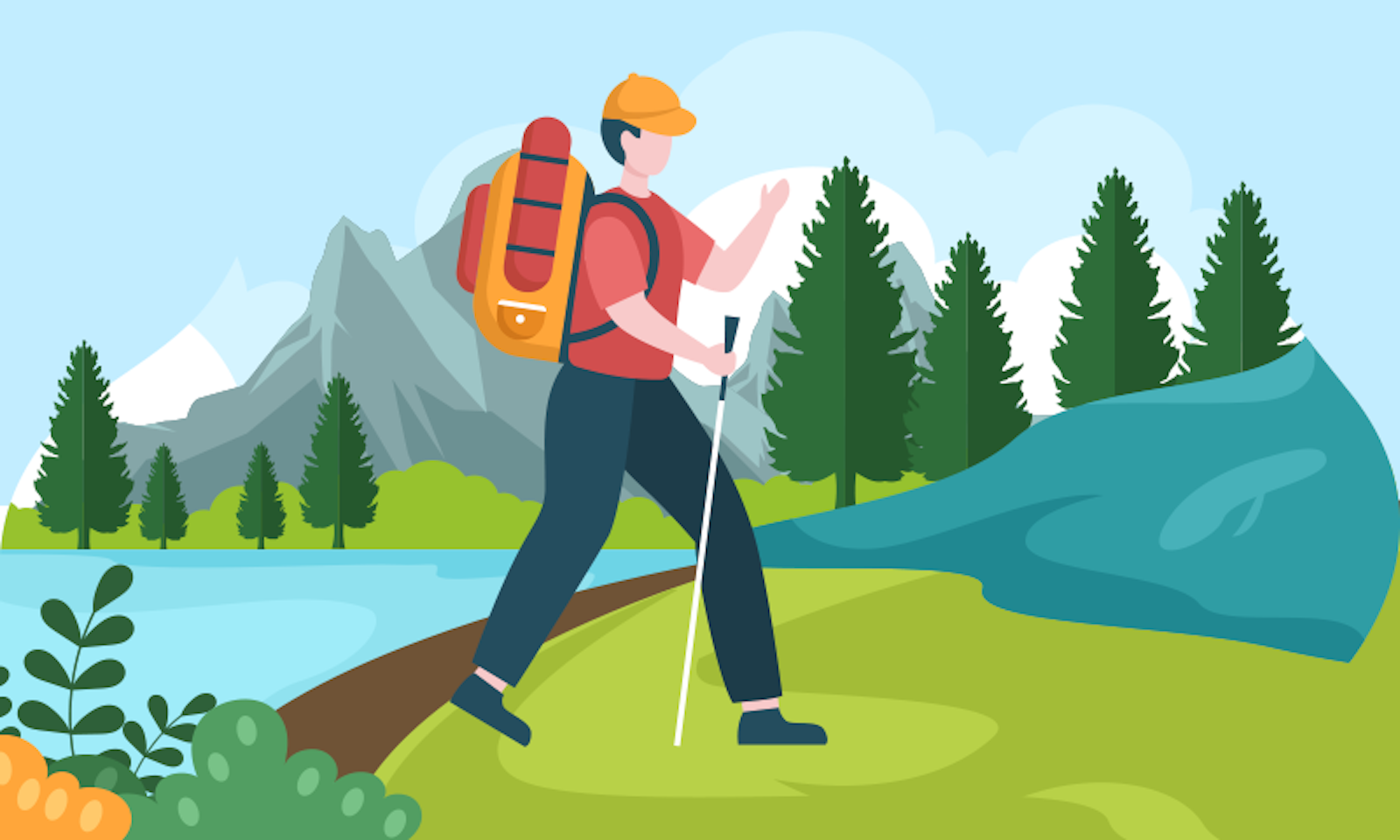Most people just feel better after a walk in the woods or a jog through a city park. Research backs this up. People who spend more time in nature have lower rates of depression, healthier blood pressure, as well as improved eyesight, better pain control, enhanced immune function, and even lower mortality rates. As far as medicines go, it’s pretty low-cost and has few side-effects.
“Explicit time in nature is really, really important for humans,” says Christopher Minson, a professor of human physiology at the University of Oregon who studies the health benefits of green spaces. “It’s how we evolved.”
A growing movement aims to help doctors prescribe more nature to patients, but one barrier is figuring out how much nature to prescribe, as well as which patients lack regular exposure, and how to make sure they follow doctors’ orders. So a team of researchers from around the U.S. have created new tracking and assessment technology to help collect data for research and measure individual stats for patients.
Time in nature is pretty low-cost and has few side-effects.
One app called NatureScore quantifies the amount of nature available in a particular geography in the U.S and Canada, and another called NatureDose can measure the nature in your diet—how much time you spend outside and in greenspace. The apps were described in a new paper published in the American Journal of Health Promotion.
NatureScore integrates information from 30 different datasets about air pollution, tree cover, parks, roads, and street view images to come up with a score from zero to 100 that ranks how nature rich a particular geographical area is. Minson, co-author of the new paper, notes that some types of natural environments score lower than others. Beaches, for example, don’t do as well as green spaces.
“Right now, the science is saying that there’s something about green space, whether it’s the fractal patterns of nature that you see in trees, whether there are plants or soils that are releasing different chemicals that might be affecting us,” he says. “But quite a few studies have shown that beaches do not provide the same health benefits.”
The other tool, NatureDose, is a free app that passively monitors a person’s time spent indoors, outdoors, and in natural settings through the location of their smartphone. It can sense when someone is in a car versus riding a bike or jogging. The app also allows users to set a goal for time spent in nature each week, and has already been used in a number of nature-tracking health studies around the U.S.
When it comes to finding the best kind of natural environment, Minson recommends seeking out spaces filled with a diversity of plants. “The healthiest forests are the ones that have the most different types of trees,” he says. He likens the health benefits to food: there’s evidence that eating a diversity of foods leads to a healthier gut microbiome. “I think the same thing is true with nature.”
Maybe a few years from now, when you go in for a checkup, your doctor will give you a prescription for a walk in a local nature preserve alongside your drug Rx—or even instead of it. ![]()
Lead image: denayunebgt / Shutterstock




























